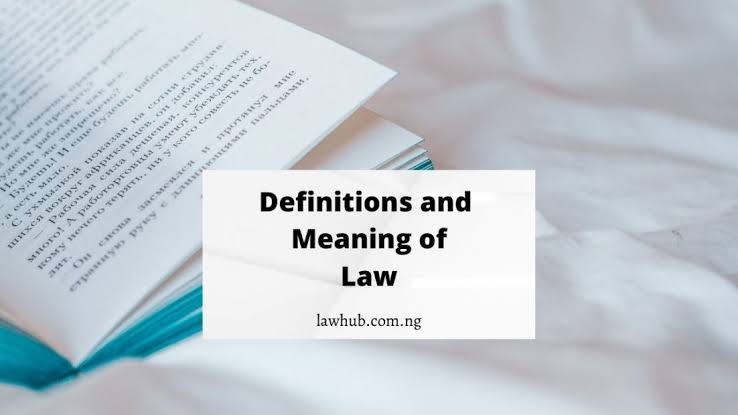Positive Theory of Law
The concept of the ‘Positive Theory of Law’ is not a difficult one to understand.
Well, if it is given the simple explanation it deserves.
And for this sake, it is important that the main words that makeup the concept be broken down.
This is to aid our understanding.
The Positive Theory of Law is one of the most popular theories of law.
What is a Theory of Law?
A Theory of law is a codified explanation on what the law should be. Or what we should regard as such. Its origin, its background, its past, its present, and perhaps, its proposed future.
The idea of law itself has contributed more controversies and diversities than clarity in semantic analysis.
I regard a Law, in general terms, as that which expresses, indicates, or imposes a consistent reality.
For details see: Law Definition and Meaning
Once anything that we can perceive by the rational capacity or senses of man is consistent, or consistent by natural phenomenon, that which expresses, indicates, or imposes it is a law.
That is, the main attribute of a Law is what I call ‘consistent reality.’
Legal Positivism: Positive Theory of Law
The word ‘Positive’ is also as ambiguous as it can get.
We can take it to mean having optimistic emotions and involvement, being sure and having no doubt. Something conclusive and irrefutable, encouraging good behaviour, affirmative, having electrical charge, among others.
But as regards the ‘Positive Theory of Law‘, the word positive can be taken to be an offshoot of or closely related to the word ‘posit.’
And in simple parlance, posit means ‘to place’ or ‘to put’.
Hence, making a good use of the knowledge of relating ideas we can say:
“Positive Law’ is that which is put or placed on the people by an authoritative ruler, or a body of rulers.”
The main principle of positive law, and one of the reasons why it is different from the natural law, is that we place it on something or somebody, while the latter is innate and inherent.
Another name for The positive theory of Law is Legal Positivism.
John Austin (1790-1859): Definition of Legal Positivism and Elements
The theory of Positive law is majorly and commonly attributed to John Austin (1790-1859). He is a British legal scholar of jurisprudence analysis.
Austin propounded his highly celebrated but controversial ‘Command Theory of Law’ in his book ‘The Province of Jurisprudence Determined’.
He published the book in 1832. In it, he defined law as:
“A command set by a superior being to inferior beings and enforced by sanction.”
There are elements we can identify from John Austin’s explanation of the concept of law.
First is the identification of a particular ruler, who is sovereign – the superior being.
This sovereign ruler is without legal limitations in his exercise of power. No legal rule binds him whatsoever. He is a dictator.
We can regard the superior being as the ‘uncommanded commander.’
Another element to note is that the subjects of this ruler must accept the act of obeying ‘him’ because of his coercive power to impose sanction.
So, the subjects give their alliance to the ruler out of the fear of punishments.
Positive School: Theory of Legal Positivism
Let’s leave the lapses of John Austin’s principles out of this. And divine The Positive law in simple parlance.
Positive law is simply that law made by anybody, body or bodies, vested with the power to make such law, which is enforced by sanction and have binding effect on the members of the state or society.
See also: Meaning of Motion in Law: Prayer and Summons
From this definition, devoid of any philosophical approach, it can be deduced that the laws and legislations made by the state to govern the affairs of the citizens, noncitizen inhabitants, domestic organizations, and its relation in the international circle are positive laws.
That is to say, the laws that the state makes are positive laws. If a law is not natural, it is most likely positive.
Authorities sanction laws to command prompt and adequate obedience. To create the reality of ‘what is’, and not just ‘what ought to be’ like natural law.
Arguments against Legal Positivism
A concept that possesses merits is prone to relative disadvantages. The positive theory of law is not an exemption.
One of the arguments against the positive theory of law is that it stresses validity rather than rightness.
According to the theory of positive law, a rule is a law once it is made by one vested with the power to make it. Without considering its goodness or badness, rightness or wrongness, or its consequences.
For this reason, the positivist legal method is a ready tool for totalitarianism and authoritarianism.
And if we adhere strictly to the principles of the Positive theory of law, then we make open our doors for dictatorial rulers.
Argument against Positive Theory of Law
Another argument against the John Austin’s school and the positivists’ is that law is not always couched with imperative languages, like ‘shall’ and ‘shall not’.
There is no doubt that some aspects of constitutional law appear like commands to favour the positivist.
See also: Pure Theory of Law
But this does not dispute the fact that some other does not.
Laws about making wills and marriage contracts are certainly not forced on anyone.
A person may choose to or not to make a will, or get married.
Moreover, to postulate that everybody obeys the law just because of the fear of sanction may be a pathetic error.
Legal Positivism: Conclusion
Let me wrap it all up with an authority, Uwaifo V A.G Bendel State.
In this case, some of the plaintiff’s landed properties were forfeited by an edict made by the state military governor.
The Supreme Court of Nigeria held that the court cannot inquire into the validity of decrees and edicts and the competence of the government to make them, nor inquire into whether a decree or edict was a legislative judgement.
What more, than this, could be said of justice by positive law?
See also: Comparison and Contrast between Natural and Positive Theory of Law
Nevertheless, the principle of common law and doctrine of equity exist still.
Thanks for reading. Leave a comment.
Reference:
Nairaland.com


